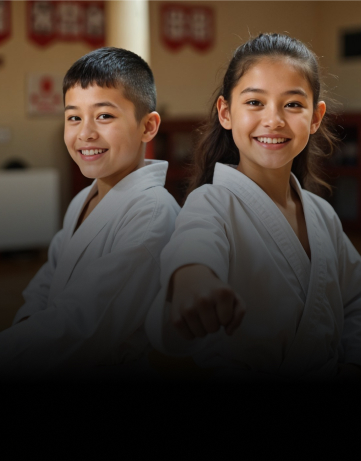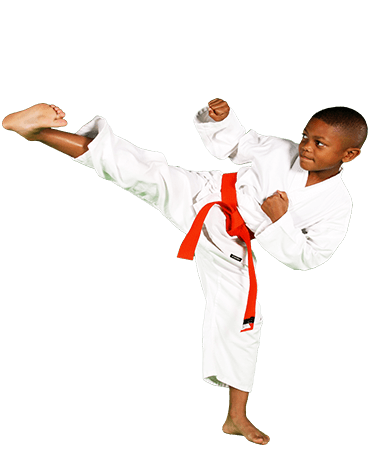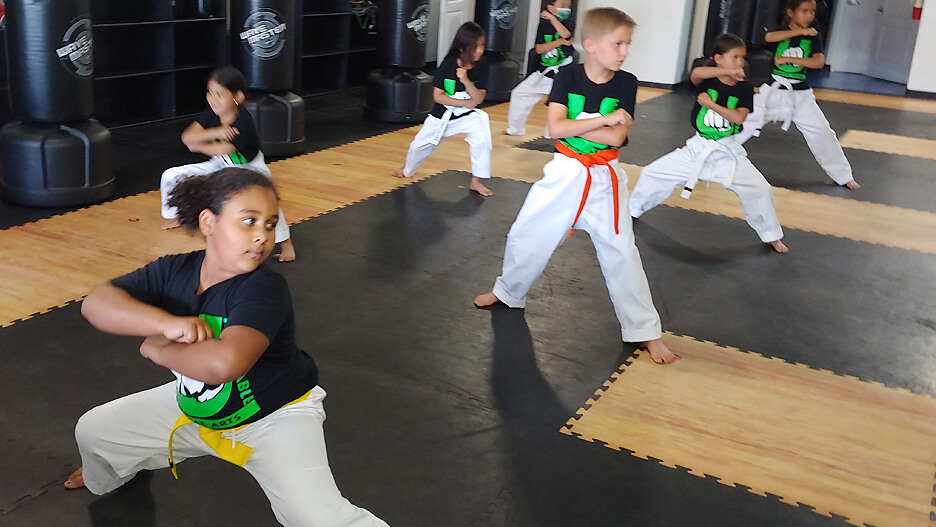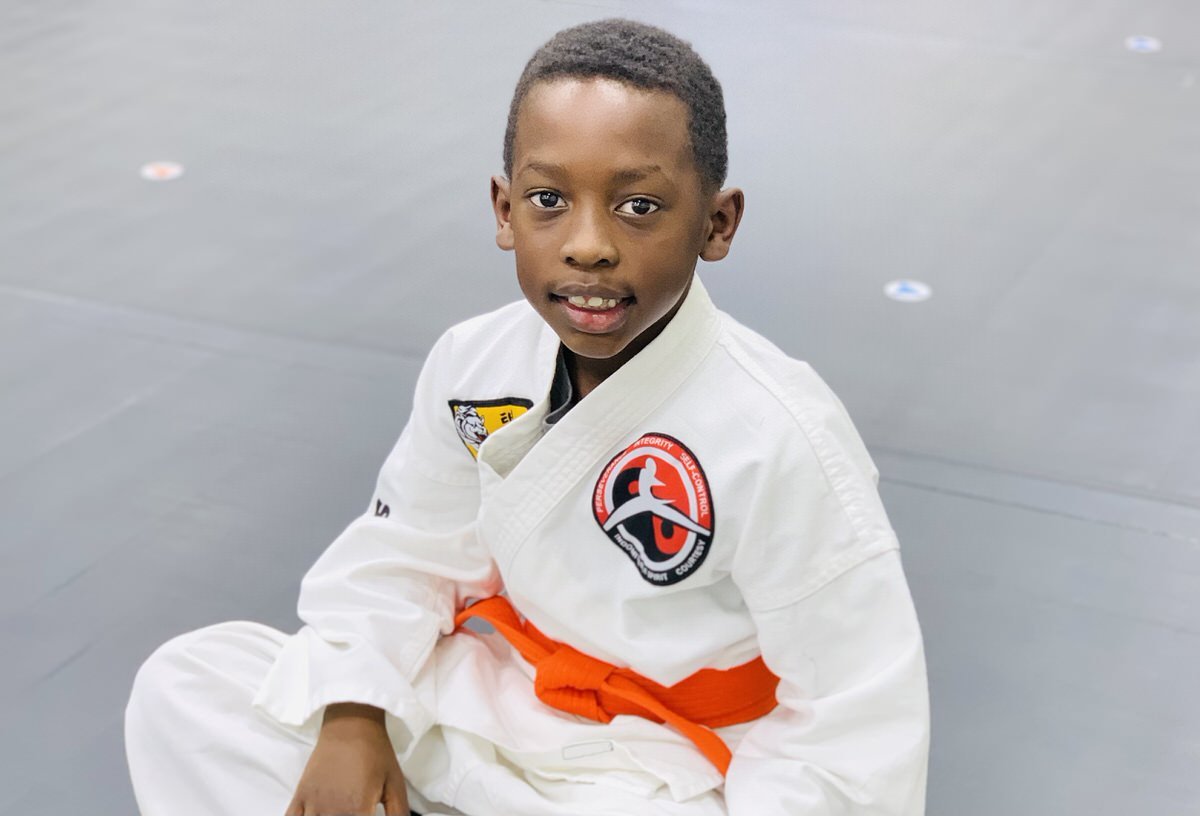Just How Karate for Children Can Boost Confidence and Self-control in Youthful Martial Artists
Karate for children supplies a distinct chance to develop confidence and discipline in young martial musicians. As they discover brand-new methods and face challenges, they not just get abilities but also establish a solid sense of self-regard. This organized environment urges them to respect the journey of improvement. Exactly how does this training convert right into their daily lives? Discover the much deeper connections that make karate even more than just a sporting activity.
The Relevance of Confidence in Childhood Advancement
Self-confidence is a vital foundation in childhood advancement. When you nurture your child's self-confidence, you empower them to deal with challenges, take risks, and share themselves easily. Kids with self-confidence are a lot more prepared to explore social scenarios and brand-new activities, which can result in long lasting relationships and beneficial experiences.Encouraging your kid to step out of their comfort zone cultivates strength. They learn that failure isn't completion yet instead a tipping rock to success. By commemorating their achievements, no issue how little, you aid them identify their capacities and worth.In this journey, support and favorable support from you play an important duty. Whether it's via appreciation or merely being existing, your participation increases their confidence. As they grow, this confidence becomes a long-lasting asset, furnishing them to browse both difficulties and opportunities with a solid feeling of self.
How Martial Arts Educates Self-control and Emphasis
Martial arts helps you build self-control and focus via its structured training program. As you practice mindfulness during each session, you'll learn to focus much better both on and off the floor covering. And also, setting and accomplishing goals in martial arts strengthens your capability to remain fully commited and attentive.
Structured Training Program
While you take part in karate training, you'll swiftly uncover exactly how a structured routine instills discipline and emphasis in young specialists. Each class adheres to a details style, consisting of warm-ups, technique practice, and sparring. This uniformity shows you to devote and value the process to enhancement. As you learn techniques and kinds, you establish a feeling of responsibility for your own progress.The structured environment urges you to establish goals, whether mastering a brand-new belt or perfecting a kata. You'll locate that remaining focused during courses and drills sharpens your concentration. The technique you cultivate in karate prolongs past the dojo, favorably affecting your schoolwork and day-to-day routines. Each session reinforces the significance of devotion, helping you turn into a more regimented individual.
Mindfulness in Practice
As you exercise karate, you'll find that mindfulness ends up being a necessary part of your training. Each action requires your full attention, helping you remain concentrated on the here and now moment. You'll learn to tune out interruptions and focus on your breathing, motions, and objectives. This heightened recognition sharpens your reflexes and enhances your discipline.During sparring or types, you'll find the relevance of being mentally existing - Karate Salisbury MD. You'll notice how this focus not only improves your method yet also develops your self-confidence. By exercising mindfulness in karate, you cultivate persistence and strength, important attributes that expand beyond the dojo. By doing this, karate instructs you to harness your mind, assisting you develop a disciplined approach to obstacles both on and off the floor covering

Personal Goal Setting Techniques
Setting goals in karate isn't practically making belts; it's a powerful method to cultivate discipline and emphasis. When you set details, possible targets, you develop a roadmap for your progression. Rather of just aiming to improve your kicks, attempt focusing on understanding a particular method each month. This strategy keeps you determined and engaged.Breaking down bigger objectives into smaller, manageable actions helps you track your development and celebrate tiny success in the process. Whether it's refining your position or boosting your sparring endurance, every goal enhances your dedication. As you accomplish these goals, you'll develop confidence in your skills and create a solid feeling of discipline that expands beyond the dojo right into daily life.
Building Strength Through Martial Arts
Fighting style, specifically martial arts, uses youngsters an unique possibility to build resilience in a helpful environment. In classes, they encounter difficulties that press their restrictions, whether it's sparring or grasping a new method with a companion. Each problem, like a missed out on kick or a shed match, ends up being a possibility to learn and grow.As they exercise, youngsters find out to welcome pain and keep trying, also when things get challenging. They find that failure isn't the end; it's part of the journey. This state of mind assists them jump back stronger, not just in the dojo, yet in day-to-day life.With each obstacle they get over, your child constructs self-confidence in their capacity to deal with challenges, fueling their decision. With martial arts, they'll recognize that durability isn't practically physical strength; it has to do with psychological grit and perseverance, empowering them to face whatever life tosses their method.
The Duty of Regard in Karate Educating
Respect is a fundamental concept in karate training, fostering a culture of self-control and camaraderie among pupils. link When you step onto the dojo flooring, you're not just learning strategies; you're likewise discovering to appreciate your trainers, peers, and the art itself (Karate Salisbury MD). Bowing at the beginning and end of course isn't simply a rule; it symbolizes your recommendation of others' initiatives and dedication.As you develop shared regard, you'll find it improves your learning experience. You'll listen much more diligently to your instructor and gain insights from fellow pupils. This atmosphere encourages constructive criticism and assistance, allowing everyone to expand together.Moreover, regard grows self-control. Identifying the value of difficult job and humility helps you stay concentrated on your training. Subsequently, this respect converts right into your day-to-day life, enhancing your communications and partnerships outside the dojo. With martial arts, you find out that respect is important for individual growth and neighborhood structure
Setting Objectives and Accomplishing Success in Karate

Social Skills and Team Effort in the Dojo
While training in the dojo, kids naturally create vital social skills and synergy capacities. As they exercise along with peers, they find out to interact successfully, share area, and support each other. Each course offers chances for collaboration, whether it's throughout companion drills or group exercises. This team effort fosters relationships and produces a feeling of belonging, making the dojo a nurturing environment.Kids additionally obtain important dispute resolution skills. When they run into challenges, such as disputes throughout sparring, they find out to browse these circumstances constructively. They practice perseverance and empathy, recognizing that every person has different toughness and weaknesses.Moreover, participating in team activities cultivates a feeling of liability. You'll see your child finding out to count on teammates and take duty for their duty in a team. These experiences not just improve their fighting styles trip however additionally outfit them with social tools they'll bring right into various nfl scores other areas of life.

The Long-Term Advantages of Martial Arts Beyond Childhood Years
As youngsters grow up and shift right into their adult years, the benefits of martial arts extend far past the dojo. You'll locate that the discipline and emphasis discovered through karate can convert into your specialist and academic life. Setting and attaining objectives in martial arts fosters a strong work values, which can push you to master any type of endeavor.Moreover, the self-confidence gained from mastering strategies and competing can boost your self-worth, assisting you take on challenges head-on. This durability becomes invaluable as you deal with the unpredictabilities of adulthood.Additionally, the social abilities created through teamwork and camaraderie in the dojo can bring about better partnerships in both expert and individual spheres. You'll discover to interact properly, resolve conflicts, and develop an encouraging network.Ultimately, karate forms not simply competent martial musicians, yet well-shaped individuals ready to take on the world.
Regularly Asked Inquiries
What Age Is Finest to Begin Karate for Kids?
You can start martial arts as early as age 4 or five, yet it frequently depends on your youngster's maturity and rate of interest. Discovering a class that suits their age and power level makes a big distinction.
Are There Any Kind Of Health Perks From Exercising Karate?
Yes, practicing karate deals many health advantages. You'll enhance your coordination, toughness, and flexibility while boosting cardio health and fitness. Plus, it enhances focus and psychological wellness, making it a fantastic choice for overall physical and psychological wellness.
Exactly How Usually Should Kids Attend Martial Arts Courses?
You must urge your youngsters to attend karate classes at least a couple of times a week. click reference Uniformity helps them learn techniques successfully and create abilities, making their experience much more gratifying and pleasurable in the lengthy run.
Can Karate Aid With Handling Anxiousness in Children?
Yes, karate can assist take care of stress and anxiety in children. It educates emphasis and self-constraint while offering a secure electrical outlet for power. You'll see your child growing much more confident and tranquil as they practice regularly.
What Equipment Is Required for Kids Starting Martial Arts?
